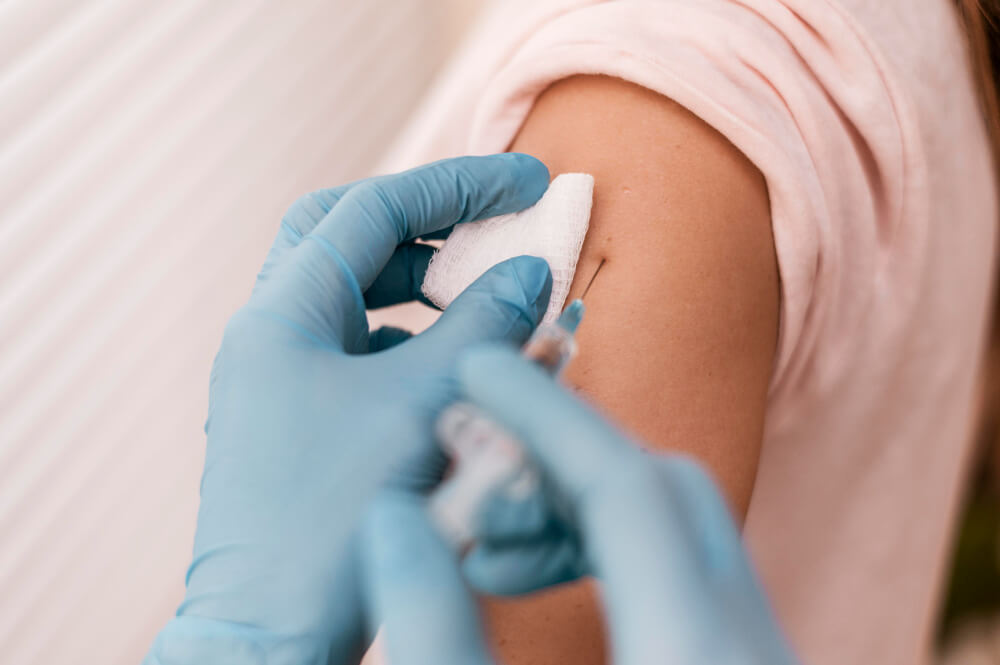Hepatitis A Vaccine: Shield Yourself Before You Travel
Dreaming of a tropical getaway or an exciting adventure abroad? While you’re busy planning your itinerary and packing your bags, don’t forget to prioritize your health! Hepatitis A, a vaccine-preventable liver infection, can pose a significant threat to travelers visiting certain regions. “Hepatitis A: Don’t Let This Tiny Virus Take a Big Bite Out of Your Summer!” equips you with the knowledge and resources to shield yourself from this potentially disruptive illness.

Understanding Hepatitis A: A Tiny Virus with Big Consequences
Hepatitis A, caused by the hepatitis A virus (HAV), is a highly contagious liver infection. While most healthy adults eventually recover from HAV infection, the journey can be unpleasant. Symptoms, which can take 2-6 weeks to appear after exposure, may include:
- Fatigue
- Loss of appetite
- Nausea and vomiting
- Abdominal pain
- Dark urine
- Jaundice (yellowing of the skin and eyes)
In severe cases, hepatitis A can lead to liver failure, requiring hospitalization.
The Culprit: HAV is typically transmitted through the fecal-oral route. This means consuming contaminated food or water that has come into contact with the stool of an infected person. Poor sanitation and hygiene practices significantly increase the risk of contracting HAV.
Travel Woes: Hepatitis A is particularly prevalent in developing countries with inadequate sanitation measures. Travelers visiting these regions are at an elevated risk of contracting the virus.
The Importance of Vaccination for Safe Travels
The good news? Hepatitis A is a vaccine-preventable illness. The HAV vaccine is a safe and effective way to protect yourself from this potentially debilitating infection.
Benefits of Vaccination:
- Long-lasting protection: The HAV vaccine offers long-term immunity, typically lasting over 20 years.
- Safe and effective: The vaccine has a well-established safety record and is generally well-tolerated by most individuals.
- Peace of mind: Vaccination allows you to travel with confidence, knowing you’re protected from HAV infection.
Who Should Get Vaccinated Against Hepatitis A?
The Centers for Disease Control and Prevention (CDC) recommends HAV vaccination for:
- Travelers to high-risk areas: This includes most developing countries in Central and South America, Africa, Asia, and the Middle East.
- People with chronic liver disease: They are at higher risk for complications from HAV infection.
- Men who have sex with men (MSM): MSM have a higher risk of exposure due to certain sexual practices.
- People who use injection drugs: Sharing needles can increase the risk of HAV transmission.
- Food handlers and restaurant workers: These individuals have a higher risk of exposure to contaminated food.
Planning Your Vaccination

The HAV vaccine is typically administered in two doses, spaced 6-18 months apart.
Consulting with a Healthcare Professional:
Discussing travel plans and vaccination needs with your doctor or travel clinic is crucial. They can assess your individual risk factors and recommend the appropriate course of action.
Protecting Yourself from Hepatitis A: Before, During, and After Your Trip
Vaccination is the cornerstone of hepatitis A prevention. However, you can further minimize your risk by adopting these strategies:
Before Your Trip:
- Get Vaccinated: This is the most critical step. Ensure you complete the recommended HAV vaccination schedule well before your trip.
- Research Your Destination: Learn about the sanitation standards in your travel destination. This will help you determine the level of caution needed.
- Talk to Your Doctor: Discuss your itinerary and any potential health risks associated with your destination.
During Your Trip:
- Practice Good Hygiene: Frequent handwashing is essential, especially before eating and after using the restroom.
- Be Wary of Contaminated Water: Avoid drinking tap water in high-risk areas. Stick to bottled or treated water.
- Wash Fruits and Vegetables: Thoroughly wash fruits and vegetables with clean water before consuming them.
- Peel Fruits Before Eating: Peeling fruits helps remove potential contaminants on the skin.
- Choose Well-Cooked Food: Opt for thoroughly cooked meals to minimize the risk of consuming contaminated food.
- Avoid Shellfish: Shellfish can be particularly susceptible to contamination.
After Your Trip:
- Monitor Your Health: Be aware of symptoms of hepatitis A infection and seek medical attention if you experience any concerns.
Enjoying a Safe and Healthy Vacation
By prioritizing vaccination and practicing good hygiene during your travels, you significantly reduce your risk of contracting hepatitis A. This allows you to focus on creating lasting memories and enjoying a worry-free vacation.
